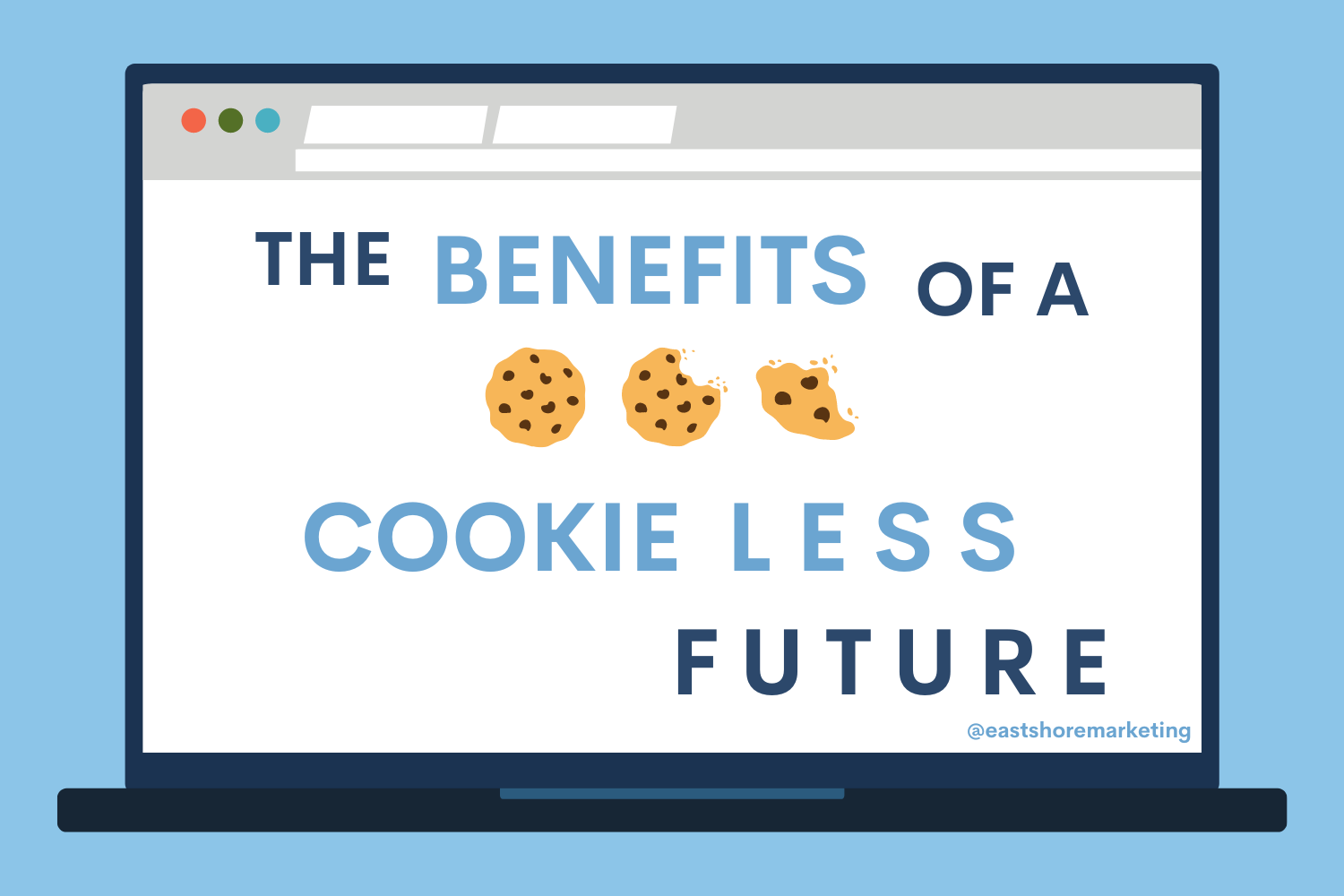Are third-party cookies going away? The short answer is yes, but the timing is a bit more complicated.
Google announced its plan to phase out third-party cookies in February 2020—with a projected roll-out date of 2022. However, the Tech Giant is pushing this deadline to late 2024, stating it wants to provide marketers more time to adjust their advertising strategies and get familiar with new privacy-centered tracking tools to target their audiences (more on that later!).
A Crash Course in Online Cookies
Whether or not you work in digital advertising, here's a quick refresher on online cookies, including how they work and what phasing out cookies means.
Online cookies are memory codes that recognize your users' online behaviors and remember their actions.
Example: When a user visits your website, the site puts a cookie on his hard drive with a specific ID number. The site then uses the ID to track the user's session on the website, including items he may have saved in his cart, pages/products he viewed, his login info, etc. This is an example of first-party cookies.
So, what do third-party cookies mean?
Third-party cookies are a bit more complex. These are tracking cookies stored under a different domain than the site you're visiting. This means third-party cookies track a user’s personal data between websites, including your location, age, and interests.
Example: Imagine searching for "women's winter boots" on Chrome. You'll probably view more than one website to check inventory, compare prices and reviews, and browse different boot styles.
But suppose you decide to wait to purchase new boots. Within a day or two, you start visiting other websites you commonly use and notice ads for women's boots appearing on these sites. Kind of creepy, right?
The Trouble with Third-Party Cookies
For marketers, third-party cookies enable us to create custom ads that target audiences and appeal to their preferences, but it does come at a "privacy" cost to our users.
Too often, this information is passed on or sold to advertisers more interested in making a sale vs. building a connection with their audience. And with third-party cookies, there is no way of knowing where all your personal information is going either, which can be scary to think about.
So, why are marketers afraid of Google phasing out cookies?
The reality is that all advertisers (both the good and the ugly) will lose a considerable amount of information about their target audiences. Remember that marketers use this info to create engaging ads that support users’ shopping experiences, bringing them news and deals that appeal to their interests vs. sending them random ads and hoping they convert.
Therefore, the fundamental goal of online cookies is to create a personalized experience and direct users to your website. So, though the intentions are good, it, unfortunately, violates the user's trust, which diminishes one of the key segments of marketing.
Although marketers are worried about Google phasing out cookies and how they will lose their ability to track essential data to inform ad campaigns, we see this as an exciting opportunity. One that will allow us to build more trust with our users and find new ways to connect and engage them while also helping to protect their privacy.
Alternatives to Third-Party Cookies
Remember when we said Google wanted to provide marketers extra time to familiarize themselves with new tracking tools?
Since its "phasing out cookies" announcement, Google has been working hard to build and launch new technologies that protect users' online privacy while still helping businesses advertise effectively with less invasive tracking tools.
A few examples include:
- Privacy Sandbox: This tool aims to create technologies that allow marketers to access certain information about their users without violating their privacy. In many ways, this will be the standard for websites on Chrome.
- Performance Max: This tool lets Google automate digital ads and campaigns for you based on the assets you provide and your defined goals.
- Topics API: This proposed feature of Privacy Sandbox is designed to help advertisers display relevant content and ads via interest-based categories founded on each user’s recent browsing history.
These tools are ideal for smaller businesses and utilize artificial intelligence (AI) capabilities to track information, create algorithms based on group interests, and deliver relevant ads to target new customers.
In addition to these alternatives, experts believe first-party cookies will gain more momentum, particularly among larger businesses. Remember, first-party cookies track sessions on an individual website to help improve the user's experience.
Why We're Optimistic
Every good marketer understands that users only connect to a brand through trust. So, rather than relying on invasive tracking tools that leave customers feeling uneasy about your intentions, we now have the opportunity to regroup and re-strategize on using tools and algorithms that protect their privacy while still providing a personalized experience.
Is it more work and strategy? Of course! But it will allow us to dive deeper into our customers' wants and challenges to help position ourselves as their trusted guide and solution.
Need Help?
If you still need to build an alternative strategy for targeting your ad campaigns, we can help! At East Shore Marketing, we'll help you build an effective marketing plan that ensures you're prepared for the third-party phase-out and are making substantial connections with your target audience.
To learn more, contact us for a consultation!

